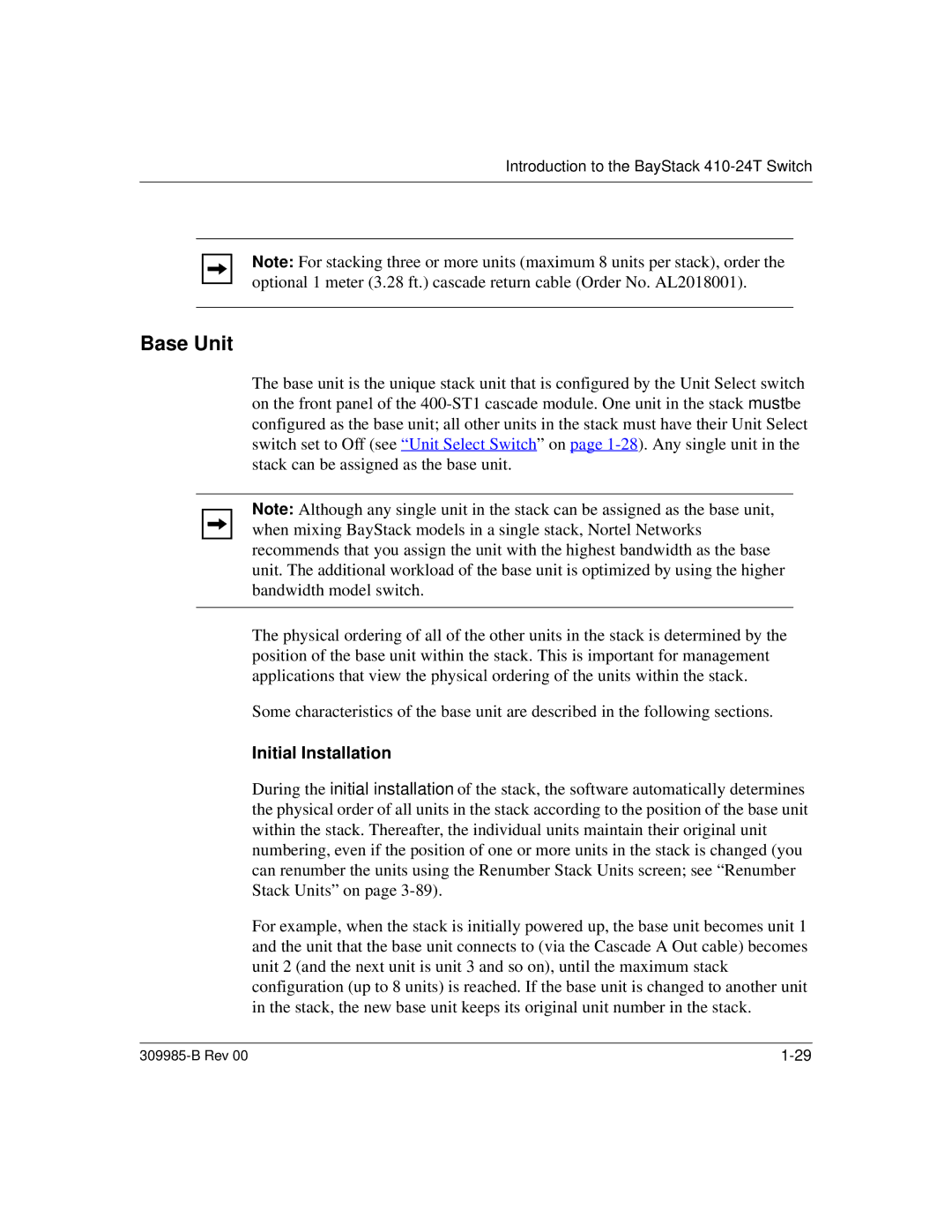
Introduction to the BayStack 410-24T Switch
Note: For stacking three or more units (maximum 8 units per stack), order the optional 1 meter (3.28 ft.) cascade return cable (Order No. AL2018001).
Base Unit
The base unit is the unique stack unit that is configured by the Unit Select switch on the front panel of the
Note: Although any single unit in the stack can be assigned as the base unit, when mixing BayStack models in a single stack, Nortel Networks recommends that you assign the unit with the highest bandwidth as the base unit. The additional workload of the base unit is optimized by using the higher bandwidth model switch.
The physical ordering of all of the other units in the stack is determined by the position of the base unit within the stack. This is important for management applications that view the physical ordering of the units within the stack.
Some characteristics of the base unit are described in the following sections.
Initial Installation
During the initial installation of the stack, the software automatically determines the physical order of all units in the stack according to the position of the base unit within the stack. Thereafter, the individual units maintain their original unit numbering, even if the position of one or more units in the stack is changed (you can renumber the units using the Renumber Stack Units screen; see “Renumber Stack Units” on page
For example, when the stack is initially powered up, the base unit becomes unit 1 and the unit that the base unit connects to (via the Cascade A Out cable) becomes unit 2 (and the next unit is unit 3 and so on), until the maximum stack configuration (up to 8 units) is reached. If the base unit is changed to another unit in the stack, the new base unit keeps its original unit number in the stack.
|
